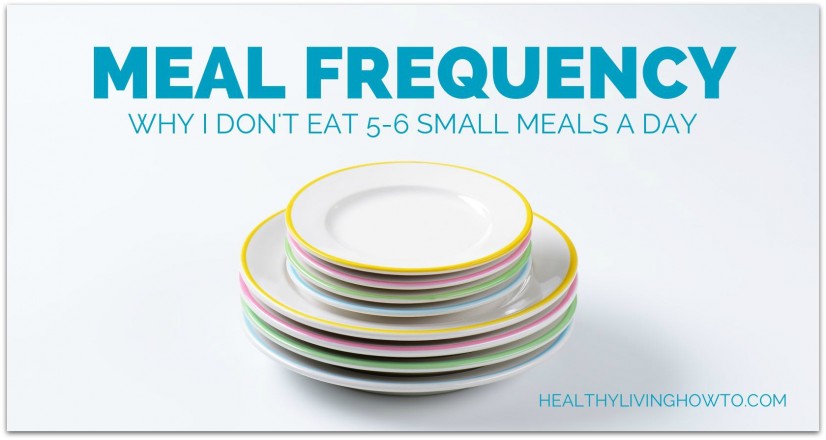For as long as I’ve been passionate about health and fitness, the idea of eating 5-6 smalls meals a day to raise metabolism, has been a persistent myth.
In my early years as a personal trainer, I unfortunately perpetuated this myth.
Back then, I didn’t realize this idea centered more around marketing and selling meal replacement shakes and bars, than it did about real science.
Today, I see it as one of the most frustrating myths that exists in nutrition.
While those meal replacement bars and shakes do have a place in the nutrition plans of some individuals, for most people, including myself, there’s no need to eat more than three meals a day.
Here’s why I stick to eating three meals per day.
1. Eating Every Few Hours Can Make Psychological Food Issues Worse
At its core, food is intended to provide us nutrition. We’ve figured out how to make it a pleasurable experience, but when pleasure becomes the priority over nutrition, we can be headed for some serious trouble.
So much of eating today revolves around emotions and food addictions.
Whether we look to food to fill a void in our life, or we’re addicted to food, eating every few hours leaves us thinking about what we just ate, or consumed with what we’re going to eat next.
I remember a number of clients in my early years of personal training who disclosed psychological issues with food.
Looking back, I have to kick myself for suggesting they eat every 3-4 hours. For some, I probably made their psychological dependence on food a lot worse.
2. Eating Every Few Hours Usually Results in Higher Carbohydrate Intakes
Some carbs are okay. Too many are bad news for body fat levels, cardiovascular health, blood sugar control, cancer risk, and even the chance of developing degenerative brain diseases like Alzheimer’s.
If you consider what the average person eats between breakfast and lunch, or between lunch and dinner, it isn’t another serving of meat and vegetables.
It’s a snack bar, chips, cookies, sugary yogurt, or some other carbohydrate filled food. Most of these foods weren’t even available a couple decades ago.
In fact, when you look at the way our diets have changed over the years, we’ve increased our total calorie intake slightly, but we’ve shifted our diets towards more carbs and less fat, and we’ve gotten fatter.
As a recent study concluded:
“general adherence to government dietary recommendations to decrease fat share of total dietary intake has been accompanied by a rapid increase in obesity rate.”[i]
Many of these extra carbohydrates are found in the snack foods people eat along with sugary coffee drinks, breakfast cereals and fruit juice.
3. Eating Every Few Hours is Less Effective for Maintaining and Building Muscle
Following a high protein meal, the body gets into more of a “muscle-building” state. It lasts for 4-6 hours, maybe longer.
Eating more food, especially more protein during this time, doesn’t offer any additional benefit.
One study showed that eating more protein, less often, resulted in a greater muscle-building effect.[ii]
Instead of eating 5-6 small meals a day, if we really want to influence our metabolism, we should pick up some weights.
4. Fasting is Good For You
If we don’t eat every few hours, won’t we lose muscle and slow our metabolism? Um. No.
Eating a meal stimulates metabolism, because your body has to break down the food in the meal to absorb it.
It doesn’t matter if you spread that food out or eat it all at once. You still burn the same amount of calories if the food is the same.
In fact, you could fast for up to 72 hours before you’d see a significant change in metabolism.
Spacing meals out and going without food for longer periods of time is actually good for you, not bad for you.
My Advice
Based on the research I’ve read, clients I’ve coached and personal experience, I don’t believe most people need to eat more than three meals a day to be active, fit and healthy.
[i] Cohen E, Cragg M, deFonseka J, et al. Statistical review of US macronutrient consumption data, 1965-2011: Americans have been following dietary guidelines, coincident with the rise in obesity. Nutrition. 2015;727-732 http://dx.doi.org/10.1016/j.nut.2015.02.007
[ii] Deutz NE, Wolfe RR. Is there a maximal anabolic response to protein intake with a meal? Clin Nutr. 2013;32:309-313
